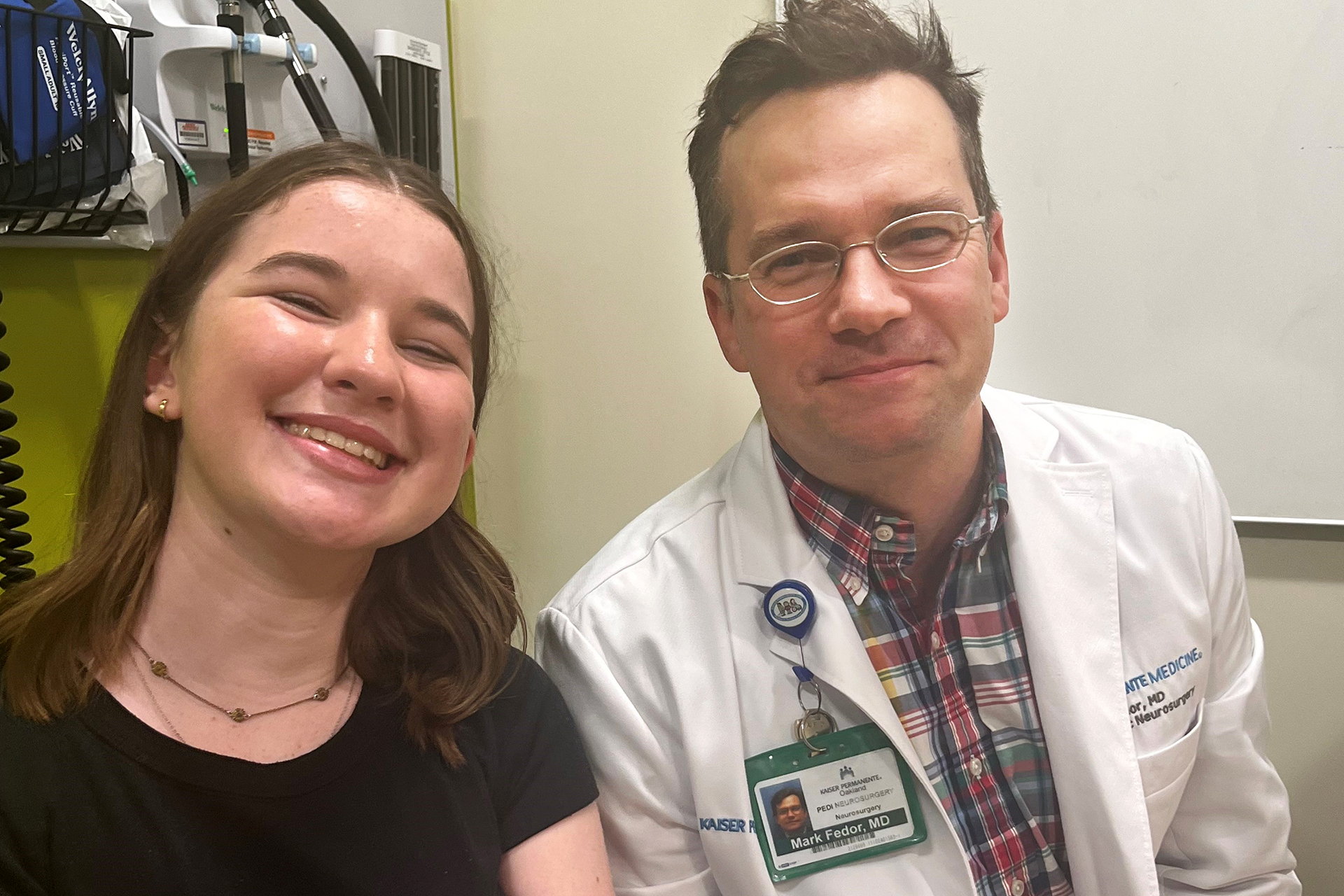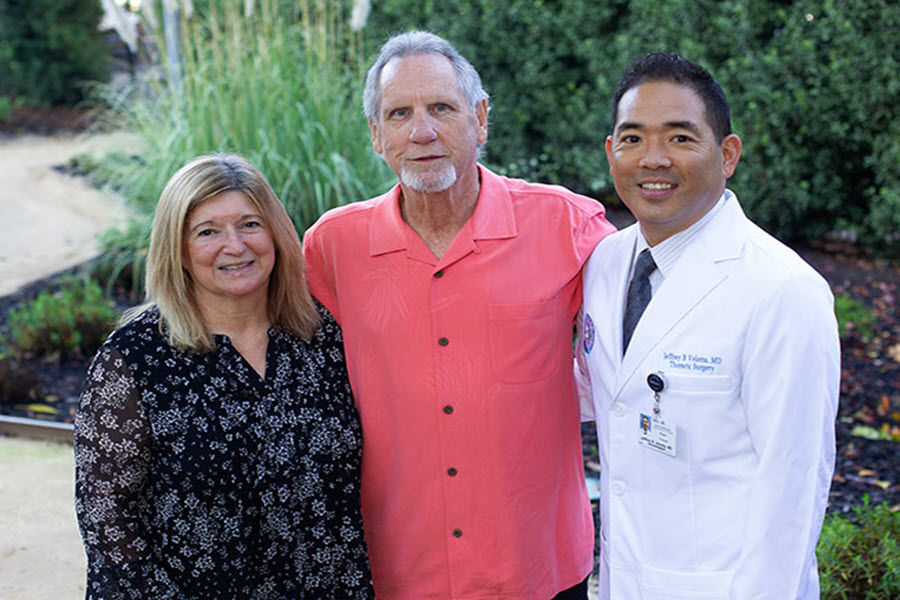Buzzfeed — Apr. 20, 2017
If you know anything about HIV, then there’s a chance you’ve heard of pre-exposure prophylaxis — aka PrEP.
If you haven’t, here’s a quick rundown: PrEP is a pill containing two HIV medicines — tenofovir and emtricitabine — that’s sold under the brand name Truvada. It was approved by the FDA in 2012 for use by HIV-negative people who have a high-risk for infection. And not only is it safe, but it freakin’ works.
“It’s been really fantastic to have another resource that we can offer people to keep them HIV-uninfected and to really empower them to take ownership of not just their sexual health but their health care in general,” Dr. Jonathan Volk, a physician with The Permanente Medical Group, Kaiser Permanente San Francisco, tells BuzzFeed Health. “It’s a game-changer.”
Sure, it’s not a cure for HIV, but it is an important step in reducing the overall rate of HIV infections. To tell us a little more about how it works, we spoke to Volk and Dr. Ellie Carmody, assistant professor of infectious diseases at NYU Langone Medical Center. So, whether you’re just doing some light research or seriously considering PrEP, here are some things they thought you should know.
- PrEP is ridiculously good at protecting people from HIV.
It’s actually over 90% effective, according to a substudy of the iPrEx trial, a randomized, double-blind, placebo controlled study (aka the “gold standard” of studies) that tested the safety and effectiveness of Truvada. But that effectiveness depends on how strictly you adhere to your regimen. Based on this research, taking the drug four days a week is associated with a 96% reduction in HIV infection, while taking the drug seven times a week (every day) is associated with a 99% reduction.
“One thing that’s kind of been an exciting surprise for me as a clinician prescribing and working with PrEP is how well this medication really does work,” Volk says.
- So you should probably take it if you have a high risk of contracting HIV.
According to the CDC, you have a high risk of HIV infection if:
- You’re HIV-negative and having sex regularly with someone who has HIV.
- You’re a gay or bisexual man who has had anal sex without a condom or been diagnosed with an STD in the past six months (and you’re not in a mutually monogamous relationship with someone who recently tested negative).
- You’re a straight man or woman who doesn’t regularly use condoms during sex with people whose HIV status is unknown (and you’re not in a mutually monogamous relationship with someone who recently tested negative).
- You’ve used injection drugs in the past six months and have shared needles, or you’ve been in or worked in drug treatment in the past six months.
In fact, the CDC recently determined that 1 in 4 gay and bisexual men, 1 in 5 injectable drug users, and 1 in 200 heterosexual adults should be counseled about PrEP.
- Before you start PrEP, your doctor will need to make sure you don’t already have HIV.
Straight up, people who already have HIV shouldn’t be taking PrEP. That’s because it takes more than just the two drugs in Truvada to fight the virus once it’s already taken hold inside the body — usually it’s a combination of three to four drugs, Carmody says. In fact, HIV is such a powerful virus that if it was only exposed to the drugs in Truvada, it could build a resistance to them, giving you two less drugs to fight it and two fewer options in your treatment plan, Volk says.
When you first see a doctor about starting PrEP, Carmody says they’ll probably ask you for your latest HIV test results and make sure you don’t have any signs or symptoms of an acute HIV infection. If your last HIV test wasn’t recent, you might have to take an RNA test, which is the most accurate method for detecting acute infections, she says.
- And they’ll do some other tests, too.
Before starting PrEP, your doctor will also check you for STIs and check your kidneys to make sure they’re healthy enough for the drug. They’ll also make sure you aren’t taking any medications that shouldn’t be used while taking PrEP, and they’ll ask for documentation of your hepatitis B and vaccination status, Carmody says.
- There might be some side effects at first. If they don’t go away, check back in with your doctor.
“The most common side effects that patients have reported to me are some mild gastrointestinal (GI) upsets in the first few days or couple of weeks as they get used to the medication,” Volk says.
These issues can include nausea, vomiting, and upset stomach — relatively mild side effects. But these issues could also be signs of something more serious, like lactic acidosis, or too much acid in the blood, according to Truvada’s website. So, if symptoms go on for longer than a couple of weeks, you should check in with your doctor, Volk says.
- Don’t worry if you miss a day — it’s not gonna mess everything up.
Your resistance to HIV won’t totally go away if you miss just one day of PrEP, Carmody says. Still, because PrEP isn’t a one-shot vaccine, you’ll have to stick to a somewhat strict regimen in order to get the best possible results. As the iPrEx substudy found, protection drops when you take less than seven doses a week.
“The more often you take it, the better it’s going to protect you against HIV,” Volk says. “However, adherence doesn’t have to be perfect, just try your best.”
- PrEP might actually work better in men than in women.
Once it’s absorbed in the body, Truvada can be found in rectal, vaginal, and cervical tissue (these drugs were actually chosen for their ability to concentrate in these areas, Volk says). However, the iPrEx substudy found there could be 20 to 100 times higher levels of the drug in rectal tissue when compared to the others, despite everyone taking the same amount of medication. That’s probably why PrEP reaches peak effectiveness for receptive anal sex after only seven days, compared to 20 days for insertive anal sex, vaginal sex, and injection drug use.
To account for these differences, women might have to stick to their regimens more strictly, Volk says. “We know from clinical trials that men who have sex with men had very high levels of protection even if a few doses each week were missed,” he says. “This may not be the case for women.”
That said, if you’re taking Truvada as you should be — y’know, seven days a week — then you’ll be protected either way, Carmody says.
- Taking PrEP doesn’t necessarily mean you should stop using condoms.
If you’re not in a mutually monogamous relationship, doctors still strongly urge patients to wear condoms in addition to taking PrEP, since they’ll protect you against STIs like syphilis, chlamydia, gonorrhea, and hepatitis C, which Carmody says gay and bisexual men are particularly at risk for.
If you’re in a mutually monogamous relationship with someone who is HIV-positive, the decision to use condoms is a bit more complicated. If your partner is taking antiretroviral therapy (ART), then they’re likely taking several HIV medicines, which work together to prevent the virus from multiplying (the new particles are called copies) and reduce the amount of HIV in the body. If your partner’s viral load is undetectable, then ART has lowered the amount of HIV to less than 40 to 75 copies per 1 mL of blood, which means there’s a very low risk of transmitting HIV. Because of this added protection, there’s also technically a very low risk of transmitting HIV when one partner is on ART and the other is on PrEP, says Carmody.
Still, that doesn’t mean you shouldn’t use them. No medication can completely eliminate the risk of HIV infection, she says, and condoms provide an added layer of protection, especially since HIV can be present in higher levels in genital fluids when compared to the blood — even more so if you have an STI — and viral load can go up between viral load tests.
- Every three months, you’ll need to refill your prescription and follow-up with a doctor.
Because things can go wrong at any time, regular quarterly follow-ups will help to make sure you’re staying healthy. Plus, you need to get your prescription refilled.
During the follow-up, Volk says your doctor will check your kidney function to make sure the meds aren’t messing them up, and they’ll also check for STIs and conduct HIV tests. “If someone is in fact diagnosed with HIV, we’ll be able to pick it up early and hopefully avoid that resistance to Truvada,” he says.
- You can stop taking PrEP whenever you damn well please.
If you haven’t been in a high-risk sexual relationship for awhile and feel like you won’t be in one anytime soon, you don’t have to keep taking PrEP. Likewise, if you feel like condoms are all the protection you need for the lifestyle you’re currently living, you can also talk to your doctor about stopping. “What’s nice about HIV prevention in 2017 is that people have options,” Volk says.
There is one catch though, Volk says: If you want to quit taking PrEP, then your doctor will probably keep you on it for a few more days, if not weeks, if there’s a possibility you were recently exposed to HIV; just to make sure you’re all clear, you’ll also undergo more testing. Of course, talking to you doctor is the only way to see what’s best for you.
- You should also talk to your doctor about your hepatitis B status, since taking and stopping Truvada can affect it.
It turns out that tenofovir, one of the drugs in Truvada, is also FDA approved to treat hepatitis B. But you shouldn’t just use Truvada to treat your hepatitis B because emtricitabine, the other drug in the pill, isn’t FDA approved for it. When you talk to your doctor about taking PrEP, they’ll ask you about your hepatitis B status, and from there, you’ll find out what treatment, if any, is right for you.
Likewise, you’ll have to talk to your doctor about your hepatitis B status before stopping PrEP. They’ll determine whether you need any additional tests or treatments, Volk says, and they’ll continue to monitor you as you quit. If you have hepatitis B and don’t tell your doctor before quitting, then your hepatitis B could get worse.
- Finally, you can get PrEP all over the US. But if you aren’t sure where to start, here are some helpful resources.
Access really depends on whether you have insurance and if you’re able to get to a medical provider. If you are insured, then Volk says that you can probably start PrEP on the same day that you go in if you have results from recent HIV and kidney tests.
If you’re not insured or don’t have a general practitioner you can visit, here are a few places you can start looking for access to PrEP:
- Emory University’s PrEP Locator, which can help you find medical providers whether you’re insured or not.
- This handy flow-chart, which lays out how you can pay for PrEP based on your insurance status.
- Gilead’s Medical Assistance Program, which can help you make payments toward PrEP.
- The Patient Advocate Foundation’s Co-Pay Relief Program, which can help you toward paying off co-pays.
This article originally appeared in Buzzfeed.






